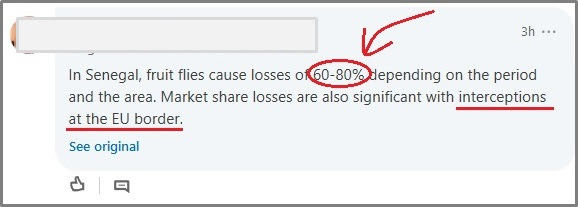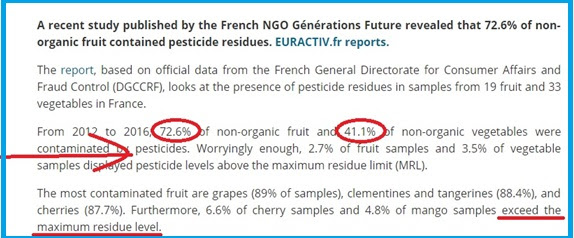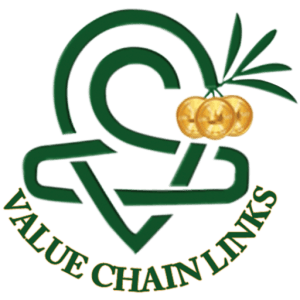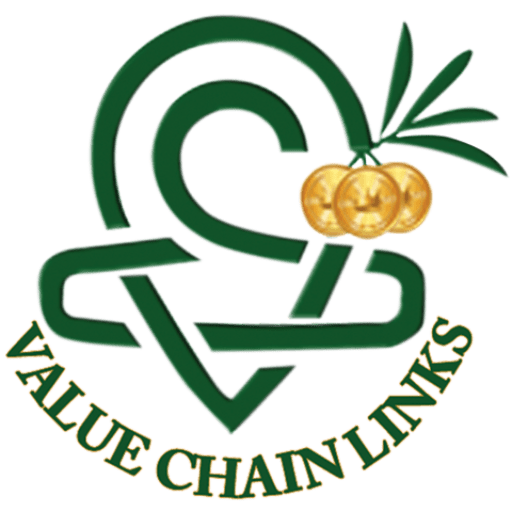INCREASING MANGO EXPORTS BY STUDYING THE CRITICAL DIFFERENCE IN THE VALUE CHAIN OF MANGO VERSUS DIAMONDS
BY DR. NIMROD

This article is sent to you from Senegal, where the fruit fly problem, and hence Export is enormous, but the potential is even greater.
I believe it is in our hands to change that present situation by doing things differently.
Here is my insight on this issue. I hope you will enjoy it and looking forward to your feedback.

About 90% of the world’s 5.41 million hectares of mangoes are growing in Africa and Asia, from which only 3%(!) is exported. Africa’s share in the global export market is less than 10%!
The outcome is a multi-million $ industry that is barely surviving.
What can mango exporters/importers (traders) learn from diamond traders that can save and boost-up the entire mango industry?
To answer that question, we need to dive into the relationships in the mango agri-business value and supply chain.
Note, this article is presenting a general problem through the description of the mango industry in Africa, but the same may apply to other crops in other continents as well.
MANGO EXPORT VALUE CHAIN
From field to the Export market and its Consumer there is a long value chain. Here I present the very basic stages and involved parties:
1. Farmers (growers)
2. Providers of inputs (e.g., sprays, fertilizers)
3. Fruit buyer / Packinghouse
4. Exporter, Importer
5. Food supply chains (e.g., supermarkets)
6. Consumers
On top of this, in both exporting and importing countries, there are the government regulators, local markets’ directives, and requirements.
The level and the quality of the relationships between the partners in the value chain determine the strength of the chain.
We can learn about the quality of the relationships within the chain, by learning how the parties relate to a core value, which has to do with the success of the entire value chain – THE PRODUCT QUALITY.
Quality includes many elements, but nowadays regulators emphasize mostly the strict requirements for standing up to phytosanitary standards –
No Quarantine pests, that is, no fruit flies, and
No Chemical residues.
We can add one more quality characteristic for Consumers – Taste.
Although the post focuses on export markets, the same is true for local markets.
From a business perspective, the above qualities sum up to improved business success, which is expressed in increased readiness of consumers to buy more mangoes and pay a higher price for added value produce.

FRUIT FLIES FACTS AND LIFE REALITY
Even in the case when farmers do use sprays, traps, and sanitation in Africa (and Asia), 50% of the mangoes are still infested by fruit flies.
When the rainy season begins, the infestation may even rise to 80%, and in some cases, even 100%!!
Unbelievable, a loss of the entire yield and a year investment, and the annual income!
To avoid serious damage, farmers harvest the fruits when still green. Later, they force the fruits to mature by using special methods, which are more chemicals.
In some places, those chemicals are not permitted for use. Furthermore, fruits are not as tasty when treated with chemicals and forced to mature, as compared to natural maturation.
THE WAY FRUIT FLIES CAN AFFECT FRUIT QUALITY
INFESTATION – average mango infestation in Africa/Asia is 50%!
At the early stages (1-2 weeks), after the fruit fly lay its eggs under the skin of the mango, it is extremely difficult to see any sign. Hence, there is a need to sort out the good fruits from the infested ones.
But this is a nearly impossible mission when the infestation is fresh, less than a week old. The fruit is lost and banned from entering major Export markets.
The worse is when an infested fruit infiltrates through all detection systems, and get to consumers. That may cause a complete export ban.

Infestation is hard to detect from the outside
CHEMICAL RESIDUES – to control the fruit flies, farmers are using all sorts of sprays. The result is chemical residues, at different levels, in all the fruits.
Many countries are not equipped to effectively monitor and enforce the chemicals maximum residue level (MRL) permitted by law.

DIAMONDS' VALUE CHAIN
In the diamond industry, it is a custom that you close a deal with a handshake. Even deals of millions are often closed without any written agreement. It is all based on Trust.
If a business partner is not receiving what was promised by the supplier, then, in the future, NO ONE will make any NEW deal with this supplier.
SUMMARY: The Diamond industry is fully based on Trust and Loyalty. In most cases, it is working well, keeping the price and the margins high.
TAKE HOME MESSAGE
Trust and loyalty are hard currency, just like Dollars, Euros, Gold, and Diamonds.
When you misuse the “Trust” element, you damage the Trust in the entire value chain, and you hurt your own chances to do good or even any business in the future.
In the export agri-business, Trust is Quality, which converts into - NO Chemicals, NO Pests, and Good Taste!
TIME TO CHANGE THE APPROACH
It takes time to build the Trust, but it takes much longer to regain it. There are no magic tricks.
But there are things that one can do to encourage Trust and become reliable -
Transparency/traceability – say exactly what you did and what you think the results are, even when it is not pleasant.
Share your information with other partners in the value chain.
Professionalism – when you become more professional, you know better your true status, hence you can share information that is closer to reality as is and cope with it.
End-to-end responsibility – this issue is critical to success. Today the value chain in the export mango industry is often broken.
There is no one or even single fully committed supply chain to follow the mango from flower to harvest, and then through the value chain to the Consumer. Responsibility can't be split. It can be shared but not split.
When you buy an iPhone, you don't care how many factories/manufacturers produced its parts. For you, there is only one address in case there is a problem, and that is Apple.
The same is true for the export mango industry, as well as other crops or services.
IN LIGHT OF THE ACHIEVABLE VISION
We want farmers to do better, consumers to have healthier fruits, and the environment to be sound and safe. This is doable, and the current situation MUST and CAN change.
BIOFEED'S VISION - To improve farmers' livelihood by increasing quality production, free of bio and chemical hazards, grown in a safe, eco-friendly environment, to enable the consumers to enjoy better and healthier food and life.
My mission is to see that it becomes a living reality.
PRINCIPLES IN BUILDING TRUST
This can be achieved when you have the commitment and mutual Trust established throughout the value chain.
How do you achieve it?
There is more than one way, but this is how we, Biofeed team, are doing it.
SET EXPECTATIONS AND PROVIDE ADEQUATE TOOLS.
Before we ask farmers to supply fruits free of fruit flies, and free of chemical residues, make sure they have the right tools (methods, knowledge, materials, etc.) to deliver it.
Until the appearance of FreeDome, they lacked the technology and the ability (know-how, solution, methods, etc.) to achieve it.
BE THERE.
Teach by example. When we are doing it shoulder to shoulder, we both get to know each other better, and we build long-lasting professional relationships.
That is exactly why, although the burden of COVID-19, I am in Senegal at this moment (even while I’m aware that on my return, I will have to spend two weeks in quarantine).
QUALITY ASSURANCE.
If you wish to excel, you need to focus on delivering High Quality, High performance, which results – no need for excuses or stories.
When you build Trust, you (and your business partners) achieve success.
We understand that mistakes and misunderstandings are part of life. That is exactly why there is a need for pains-taking quality control throughout every process we do.
Mistrust is often the result of misunderstandings, mistakes, and frustration that is following failures.
When you do things by remote control, you increase the chances of misunderstandings.
Instead, be there (wherever 'there' is) and show what and how to do by personal example.
For that reason, we in Biofeed invest a lot of time at the beginning of every new relationship to work closely together, including in the field.
We don't leave space for luck. Once again, that is exactly why, although the burden of COVID-19, I am in Senegal at this moment.
When this is done properly, then you build such strong Trust that even when there is a problem, you overcome it together! You have greater Empathy for your partners to this journey, and that is all it takes.
Typically, when you do innovative or challenging projects, there are 'problems.' Problems are part of any project, a result of a change.
To keep ahead, you need change, you need projects, and you need mutual Trust, so your relationship and project will survive the troubles ahead.
BUILDING TRUST AND MANGO EXPORT
I am personally committed to stick and deliver Biofeed's vision from Farmer to Consumer.
The best way to supply Consumers with healthy produce is by working together with the farmers.
When you make sure they stand up to your desired high standards, it becomes the first, and most important, the base of Trust in the supply chain. Indeed this is what we do.
In my current trip to Senegal, this is what I’m doing as well.
Unlike the ineffective and poisonous fruit fly control products you see everywhere, the Biofeed FreeDome fruit fly solution, based on a novel patented technology, already proved (in over ten years) its ability to deliver export quality results, without the need for sprays.
But that is not all. To make sure the results apply to export quality demands, we must use a systematic approach that is not only up to the farmer.
For this, we have developed the Fruit Fly Certified Trade Zone (FFCTZ) concept and protocol.
Farmers growing within the FFCTZ, according to its protocol, are formally approved to export their mangoes.
They are approved for export, and they are happy, but they are not set for doing it by themselves.
So once again, Biofeed fills-up the gap, this time between the farmer and the market.
For this, we need to gain the Trust of stakeholders up the value chain - the traders, packinghouse, exporters/importers, supermarkets, and most important with consumers.
There needs to be a Signature of Trust, which will represent all the uniqueness and the high quality of the produce that farmers have managed to grow in the FFCTZ.
That Signature of Trust is the Green Valley label, which symbolizes the quality of the produce, carrying Biofeed and my personal commitment.
You see, the greatest commitment is when you take the mango from the field all the way to the consumers, and you can put your hand on your heart and honestly say;
"this mango that you see before you grew up with the utmost respect to the environment. We (I personally) used the breaking through technology, with the most advanced know-how, to remove every possible spray.
The farmer who grew it harvested it in optimum timing so that you, the Consumer, can enjoy the best taste. But this fruit is not only tasty; it is first of all healthy, free of quarantine pests, and free of chemicals.
When you buy that fruit, you enjoy more and support farmers' livelihood and encourage them to quit spraying and pay more attention to healthy quality."
It's not easy, but it is doable, and it is up to us to execute it. Because that is how you rebuild Trust throughout a broken value chain, this is how you revive the export mango industry.
Clearly, the same model can be used to build Trust and revive other agri-business export industries.
WHERE DOES BIOFEED STAND ON EXPORT ISSUE?
Understanding of these historical processes, Biofeed has deliberately chosen to focus on the most urgent matters the world is facing.
We choose to do it because of our core (company and personal) values, passion, and vision of improving farmers' status, consumers' health, and preserving the environment.
We can do it because it is in line with our business culture and attitude of taking responsibility upon ourselves and assisting others in achieving theirs.
Biofeed chooses to support and assist farmers in growing agricultural produce at export quality, brand it, and trade it in premium markets.
Biofeed chooses to focus on working together with farmers in emerging economies.
Biofeed chooses to challenge major crops that are most difficult to grow and protect.
Biofeed chooses to challenge, and WIN, to cope with the most notorious pests.
Biofeed chooses to brand and market the highest value produce to the most premium international markets.
We chose to do all that and more because we know it is a highly demanding task.
Because we know that by doing so, we become a better version of ourselves.
Hence, we will be in a better position to help others to become better versions of themselves.
Because it will push us to be at our best at all times, all the time.
Biofeed believes that making this world a better place is by combining Good-Business with Doing-Good for the Consumers, the Farmers, and our Blue Planet Environment.
If you wish to kick-start your economy or national scale operation using advanced economic models, protocols, and field-tested agricultural technologies, contact me. Let's see how together we can take it a GIANT step forward.


Titus
May 8, 2021 at 8:07 pmVery informative, thanks.